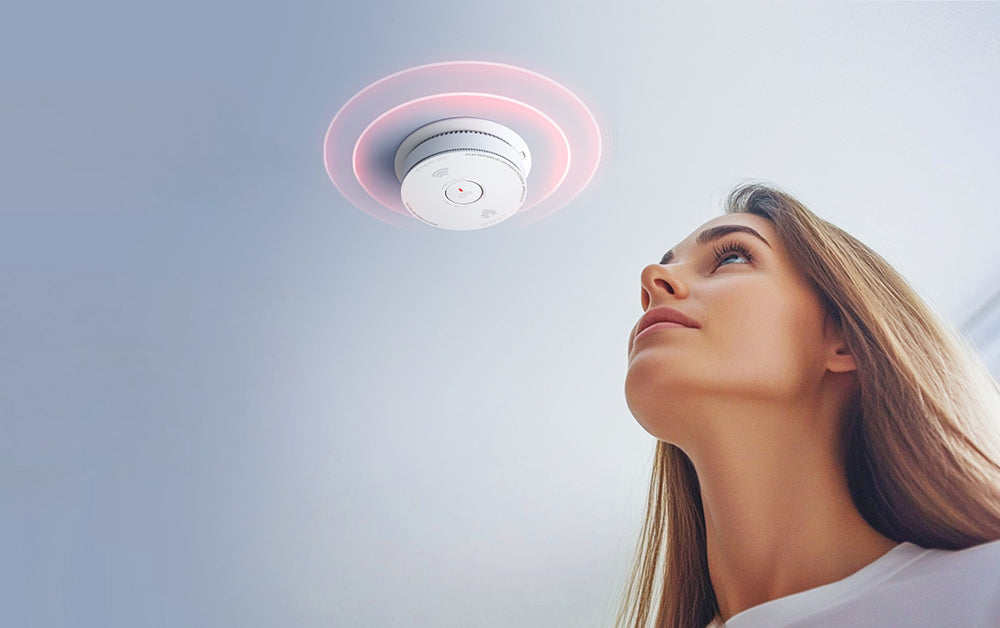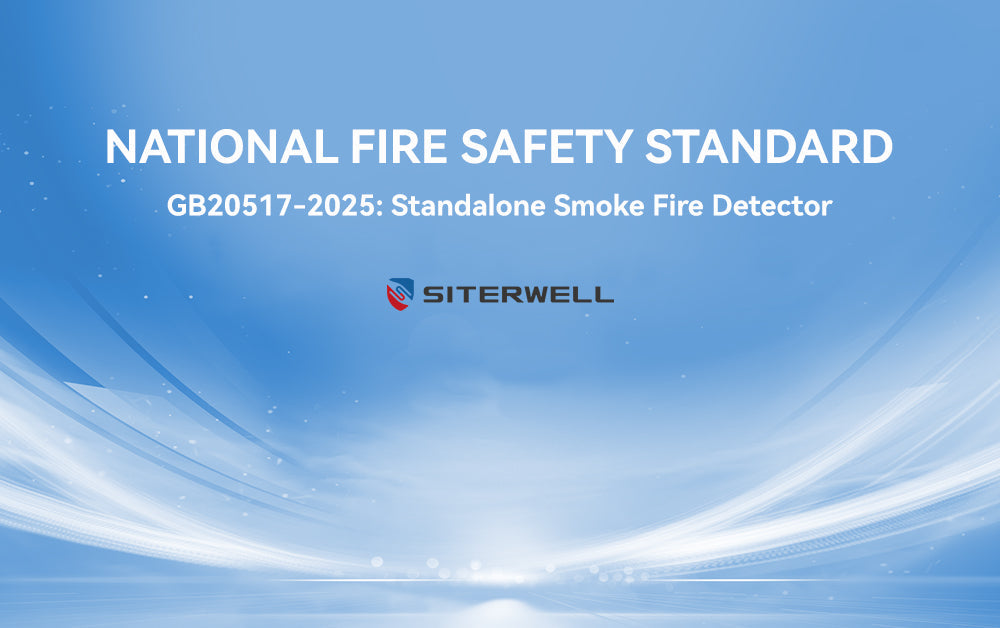Smoke Detectors are essential life-saving devices that no home should be without. They're designed to alert you at the first sign of smoke or fire—but what if yours keeps going off for no reason, especially at night? False alarms aren't just annoying. They disturb sleep, cause stress, and may even tempt people to disable the device, which could seriously compromise safety.
In this blog, we'll explain why your smoke detector might be too sensitive, how to fix false alarms, and how to prevent them from happening again.
How Do Smoke Detectors Work?
Before troubleshooting false alarms, it helps to understand the two main types of smoke detectors:
1. Photoelectric Smoke Detectors
Use a light beam and a sensor to detect smoke particles that scatter the light. They're better at catching slow, smoldering fires (like burning upholstery or wiring) and tend to cause fewer false alarms from cooking.
2. Ionization Smoke Detectors
Use a small amount of radioactive material to ionize the air. They react faster to fast-flaming fires (such as paper or grease fires), but are more likely to be triggered by steam or cooking fumes.
Each type has strengths, and non-fire sources can trigger both.
What Causes Smoke Detectors to Trigger False Alarms?
Several factors can cause your smoke alarm to go off unnecessarily. Here are the most frequent culprits:
1. Poor Installation Location
Installing your alarm too close to cooking appliances, the shower system, windows, or HVAC vents can expose it to non-fire particles like steam or dust.
2. Cooking Smoke or Steam
Every day cooking, especially frying, grilling, or boiling, can trigger alarms even without actual danger.
3. Dust, Dirt, or Insects
A build-up of dust inside the detector chamber or a small insect crawling in can set it off.
4. High Humidity or Rapid Temperature Changes
Moisture and temperature spikes (like opening a hot oven) may confuse sensors.
5. Low Battery or Loose Battery Contacts
A low battery can cause chirping or false alarms. Loose battery placement can intermittently break contact and trigger beeps.
6. Device Age and Wear
If a smoke detector is used beyond its designed lifespan (typically 10 years), its sensors may degrade, causing excessive sensitivity or malfunction.

How to Stop Smoke Alarms in Smoke Detectors: A Step-by-Step Guide
To stop your smoke alarm from going off unnecessarily, follow this logical inspection path:
1. Clean the Smoke Detector
Use a vacuum cleaner or a soft brush to gently remove dust, debris, and any insects that may have entered the sensor chamber.
2. Check Installation Location
Move the detector at least 3 meters from kitchens, steamy bathrooms, or showers.
Avoid placing it near air vents, windows, or ceiling fans.
3. Inspect the Battery
Make sure the batteries are properly seated and not corroded. Replace them according to the manufacturer's schedule—typically once a year or as needed.
4. Check Device Age
Most smoke detectors have a lifespan of 8 to 10 years. If yours is older, it may no longer work reliably and should be replaced.
5. Test Interconnected Alarms
If your alarms are interconnected, one faulty unit may trigger others. Test each alarm individually to isolate the problem.
6. Use the Hush/Silence Button
Instead of removing the batteries, use the hush feature (if available) to temporarily silence the alarm.
7. Consider Upgrading
Photoelectric detectors are less sensitive to cooking smoke and steam than ionization detectors. Smart alarms with app control can also help you monitor and silence false alerts remotely.
8. Never Tape or Block Sensors
Blocking the sensor disables its ability to detect smoke and puts your safety at serious risk.
Common Mistakes to Avoid
- Don't remove the battery or disable the alarm—this puts your home at risk.
- Avoid covering the sensor with tape—it blocks real smoke detection.
- Never skip testing after battery replacement—always press the test button to confirm it works.
- Don't ignore chirping sounds—they often indicate a failing battery.
Your Detector Isn't Broken, It's Just Doing Its Job
False alarms can be frustrating, but more often than not, they're a sign your smoke detector is doing its job. With proper placement, regular maintenance, and modern technology, you can minimize nuisance alarms while staying safe and protected.






